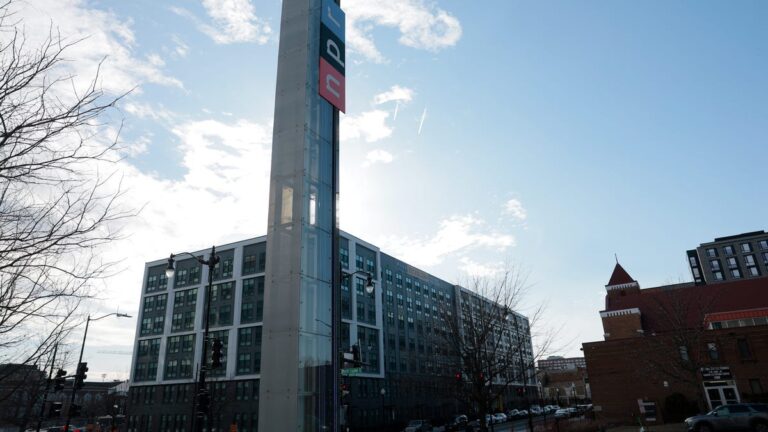WPSU is Penn State’s NPR and PBS affiliate serving central Pennsylvania.
Senate passes bill to cut funding to public broadcasting
The bill to cut more than $9 billion from public broadcasting, foreign aid and more will move on for a final House vote, then to the president.
- WPSU, Penn State University’s NPR and PBS affiliate, announced Sept. 11 that it will begin to “wind down” operations.
- The move comes after Congress approved more than $1 billion in cuts to the Corporation for Public Broadcasting.
- It also comes after Penn State’s board declined to approve a sale to another public media station.
A central Pennsylvania public media outlet is among the first stations to close down after President Donald Trump’s federal cuts to public radio and television.
WPSU, Penn State University’s NPR and PBS affiliate, announced Sept. 11 that it will begin to “wind down” operations after the university’s board of trustees voted unanimously against a proposal to transfer the station’s ownership to another station in Philadelphia.
This station operated in central Pennsylvania and broadcasted in one of the largest geographic coverage areas in the nation, according to its website. This year, it celebrated its 60th anniversary.
“We are deeply moved by the outpouring of support from our community,” read a post on WPSU’s Facebook page. “To everyone who has signed petitions, written letters, and reached out to leadership — thank you. Your voices are powerful, and your belief in WPSU fuels our determination.”
The decision to close the public television and radio station comes a month after the Corporation for Public Broadcasting announced its own wind-down process after Congress passed a measure axing more than $1 billion in federal funding to the organization.
But a large chunk of its funding came directly from the university. WPSU reported that Penn State University provided about $3.4 million a year, and that it expected $1.3 million this year of federal money but lost that in the cuts. The station’s financial impacts led to a round of layoffs in June. The combined cuts made up about a quarter of the station’s budget, WPSU reported, and led to a round of layoffs in June.
Its financial struggles made it so the only way WPSU would survive would be through selling to WHYY, the Philadelphia-area NPR affiliate. But the university rejected the proposal that would have transitioned the station with a $17 million subsidy over five years. This meant that the next step would be for the university to develop a “wind-down plan” ending, at the latest, on June 30.
In a statement, the university’s board of trustees’ chair David Kleppinger called this an “incredibly difficult decision,” but that “significant headwinds” toward higher education and public media meant that the university couldn’t support the proposed transaction.
“We know this is a deeply disappointing outcome and we are grateful to the dedicated WPSU employees whose work has enriched our lives and made our community stronger,” Kleppinger said in the statement.
More than 4,000 people signed a petition to “save WPSU” on Change.org, with its description urging locals to support the station: “WPSU is a reliable source of information about current news, one of the best ways people find out about events happening in their community, and it is sometimes the only source of information for people in rural areas.”
The USA TODAY Network reached out to WPSU for comment on its next steps and to NPR and PBS on the closure of one of its affiliate stations.
The USA TODAY Network’s coverage of First Amendment issues is supported by a partnership from Freedom Forum and Journalism Funding Partners. Funders do not provide editorial input.


